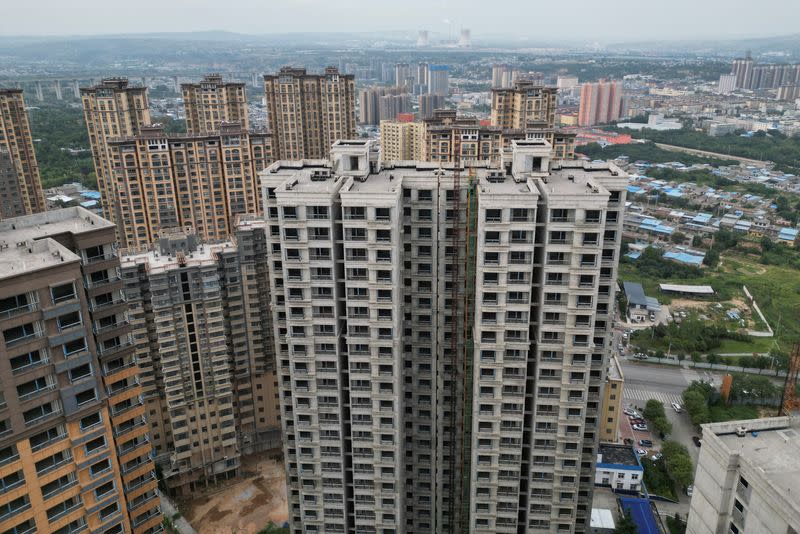China’s new home prices slipped in June by 4.5% from a year earlier – the fastest in nine years, while property sales and investment slumped.
Prices were down 0.7% month-on-month in June after a 0.7% dip in May, hitting the lowest since June 2015, according to Reuters calculations based on National Bureau of Statistics (NBS) data.
The news increases pressure on policymakers for more stimulus to prop up the battered sector as it struggles to find a bottom.
ALSO SEE: Suu Kyi Adviser Calls For Sanctions on Myanmar’s Central Bank
The property market’s steep downturn since 2021 has led to a series of developers defaulting, leaving numerous construction sites idle. This has eroded confidence in the sector, traditionally favoured by Chinese households as a safe haven for their savings.
The property sector, which at its peak accounted for a quarter of GDP, remains a major drag on the $18 trillion economy.
Authorities have rolled out a flurry of support measures, including cutting home buying costs in major cities and allowing local governments to buy some unsold apartments and turn them into affordable housing.
“Recent supports are a step in the right direction but are still dwarfed by the scale of the problem. Real estate’s tentacles run deep. When the sector hurts, pain is felt economy-wide,” said Murphy Cruise, economist at Moody’s Analytics, said in a research note.
Official data also showed China’s economy grew 4.7% in April-June, its slowest since the first quarter of 2023 and missing a 5.1% analysts’ forecast in a Reuters poll.
While some measures such as the lifting of home purchase restrictions have helped market sentiment, more stimulus may not bolster falling prices.
“The structure of supply and demand in the property sector has been fundamentally reversed. (The market) does not need to have excessively high expectations of the effects of the policies,” Zhang Dawei, an analyst at Centaline Property Agency, said.
“It is unlikely that there will be a rise across the board in the sector in the future,” Zhang said.
Sales by floor area down by 19% this year
Property investment fell 10.1% in the first half of 2024 from a year earlier, and home sales by floor area fell 19.0%, compared with a 20.3% slump in the first five months of the year, separate NBS figures showed.
Markets will closely scrutinise directives from the Communist Party leadership meeting starting on Monday where key economic issues will be discussed.
Policy advisers believe China could unveil tax and fiscal changes that would funnel more tax revenues to debt-laden local governments to help ease pressure on their finances.
“The remainder of 2024 will be defined by officials’ success in arresting the property market’s falls and encouraging domestic spending. Both require significant intervention,” Moody’s Analytics Murphy Cruise said.
- Reuters with additional editing by Jim Pollard
ALSO SEE:
China’s Guangzhou R&F Properties Faces Liquidation Petition
China Lawmakers Finishing Law to Set up Financial Stability Fund
Chinese Clients Ditching PwC After China Evergrande Fiasco
Restructuring Firms Busy in Hong Kong Amid China Property Crisis
Conflicting Goals Could Limit Outcomes From China’s Plenum
China’s Exports Surge 8.6% in June, But Imports Drop 2.3%
China Building More Solar, Wind Than Rest of World Combined
Climate Crisis Has Cost China Billions Already This Year
China Shifting to ‘Green’ Steel Production as EU Levy Looms
China Plans New Way to Measure Products’ Carbon Footprint
























